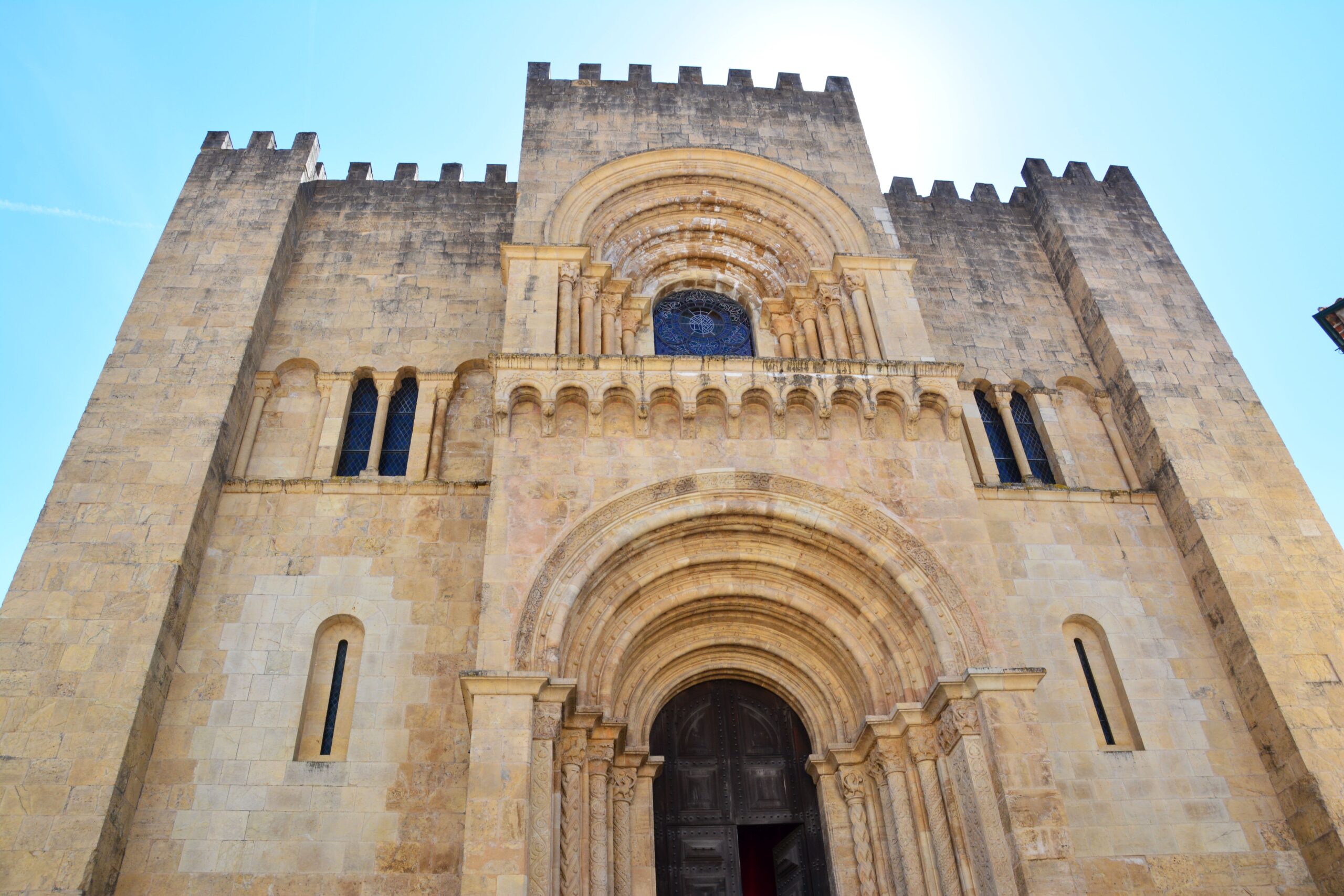DEUTSCHE WELLE / QANTARA (18/8/2021)
The stones of Coimbra’s twelfth-century cathedral glow in the last rays of sunlight on a warm summer evening. Swallows swirl around the austere building as tourists line up to visit the Romanesque monument in Portugal‘s third largest city.
The cathedral’s elaborate three-storey portal in the northern façade attracts many visitors. But right next to it stands something more unique, yet far more discreet – an Arabic inscription on the wall of one of the country’s oldest and most important Roman Catholic buildings.
It’s less than a meter wide, and it’s so high up that it goes unnoticed. Most people who pass by can’t read the Arabic letters that were carved into the stone and have faded over the course of eight centuries.
Alois Richard Nykl, a linguist and Arabist who visited the old cathedral in the summer of 1940, translated it as follows “I wrote (this) as a permanent record of my suffering; my hand will perish one day, but greatness will remain” (…)
Read more: https://en.qantara.de/content/arabic-inscription-on-coimbra-cathedral-greatness-will-remain
